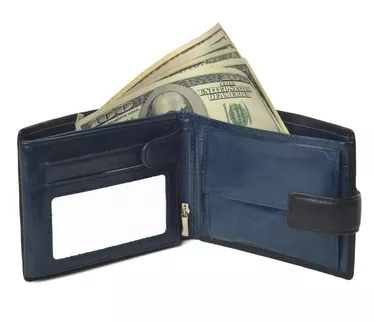
Your car and the loan against it are two quite separate things. If a repossession agent tows the vehicle away, the loan lives on. You don't have a car any longer, but you still owe the money you borrowed. What happens next is up to your lender. If it takes certain legal steps, it can garnish your wages in some cases.
Sale of the Vehicle
Video of the Day
The lender doesn't want your car. It wants the money it gave you to buy the car. After repossession, lenders spend a little money having the cars cleaned up and, if necessary, repaired. Your lender then sends the vehicle to auction for sale. If the vehicle doesn't sell for enough to cover your outstanding loan, plus the costs of the repossession and what the lender spent preparing it for sale, you owe the difference in most states. This is a deficiency or a deficiency balance. The lender must sell the car for a commercially reasonable price, however. It can't give it away for pennies on the dollar and expect you to foot the bill for the difference.
Video of the Day
Liability for the Loan
Although the finer details vary a little by state, your lender usually has a right to pursue you for the deficiency. You signed a contract, agreeing to pay back the money you borrowed, and the contract remains valid and binding even if the vehicle is no longer in your possession. This is the case even if you voluntarily surrendered the vehicle to your lender.
Some states limit the amount of time the lender has to try to get its money back. For example, Arizona gives creditors four years, after which the statute of limitations on the debt expires. Check with legal aid or an attorney in your area to find out how long your lender has in your state.
Garnishment Requires a Judgment
Your lender can't simply notify your employer that it wants a portion of your wages to satisfy the debt you owe. It must file a lawsuit against you, asking the court to enforce the terms of the contract you signed and order you to pay the deficiency. After the court issues a judgment, the lender can ask for an order or writ for garnishment. It then serves on your employer, which has to withhold a portion of your paycheck to forward to the lender.
Garnishment Limited By Law
Some states have their own laws for how much creditors can take from a worker's pay, while others follow federal rules. Federal law limits garnishments to 25 percent of your disposable earnings after taxes or the amount over 30 times the minimum wage, whichever is less.
On rare occasions, your repossessed auto might sell for more than you owe. This might be the case if you've come close to paying the loan off. In this case, the lender would have no reason to sue you and couldn't garnish your pay. In fact, in most states, it's obligated to return any surplus of sales proceeds to you.